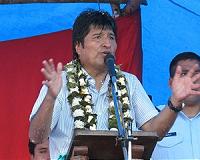| . |  |
. |
Washington (AFP) Nov 23, 2010 Technical problems are slowing down Iran's uranium enrichment, allowing more time for diplomacy to defuse tensions over its nuclear program, a former official with the UN atomic watchdog said. "It looks like that there might be still time for a negotiation," said Olli Heinonen, former deputy director of the International Atomic Energy Agency (IAEA). Iran has run into technical difficulties in its efforts to enrich uranium, due possibly to a flawed design for centrifuges, Heinonen said Monday at an event organized by the Arms Control Association. The centrifuges are also operating at only 60 percent of capacity and Iran for some reason has removed hundreds of the machines. "This indicates there is a problem," Heinonen said. A September report from the IAEA said an enrichment facility at Natanz houses about 8,800 centrifuges, but only about 3,700 are operating. Iran also has struggled with plans to build a new, more powerful centrifuge model, according to Heinonen. Iran's current centrifuges are drawn from a Pakistani model that was based on an old Dutch design. But developing a new centrifuge may be hampered by difficulties in securing raw materials such as carbon fiber, due to tightened international sanctions against Tehran. Reports of problems with Iran's centrifuges have fed speculation that the country's nuclear program may have been targeted for sabotage by the United States or its allies. Computer security experts say an extraordinary computer worm, Stuxnet, may have disrupted control systems for the Iranian centrifuges, causing them to spin wildly out of control. Most of the Stuxnet infections have been discovered in Iran, giving rise to speculation it was designed to disrupt the Islamic republic's nuclear work. The United States reportedly has tried to derail Iran's enrichment efforts in the past, with the CIA arranging the supply of flawed parts to Iran for several years, according to The New York Times. Stalled negotiations between world powers and Iran over Tehran's nuclear program are now likely to resume on December 5 in Geneva, according to the European Union's top diplomat, Catherine Ashton. Iran and the United States, Russia, China, France, Britain and Germany have agreed to return to the negotiating table for the first time since October 2009. Western powers led by the United States and Israel fear that Iran plans to produce highly-enriched uranium for nuclear weapons, but Tehran insists its program is a peaceful drive to generate civilian energy.
earlier related report "Nobody will stop me" from negotiating with any country, Morales said at the opening of a biannual conference of regional defense ministers attended by Gates. "Bolivia, under my leadership, will have agreements and alliances with everyone," the leftist leader added. "We have the right, and we have a culture of dialogue." Morales, who has signed several political and economic deals with Tehran and has tense relations with Washington, announced late last month that Bolivia has plans to build a nuclear plant with Iran's help, stressing the facility would be for peaceful purposes. Upon his arrival in Bolivia on Sunday, Gates cautioned against the motives of Tehran, which the international community suspects is seeking to develop nuclear weapons under cover of a civilian nuclear program, despite Iranian denials. "I'm not sure the Iranians have an independent capability to help somebody build a civil nuclear capability. Their own capability has been under contract with the Russians" for 20 years, Gates said. "I don't really know what the Iranians are up to, to really tell you the truth," he said. The US embassy in Bolivia expressed disappointment with Morales' remarks. "We regret that the Bolivian government missed a chance to make progress on key issues before the meeting," the US embassy said in a statement. Morales has visited Iran twice in as many years, while Iran's Mahmoud Ahmadinejad travelled to Bolivia in 2007 for the first visit by an Iranian president. Under Ahmadinejad, the Islamic republic has strengthened diplomatic ties with Latin America, and with Bolivia, Brazil, Nicaragua and Venezuela in particular. Gates was due later Monday to address the conference, which is expected to address defense budgeting, disaster response and transparency in arms sales.
Share This Article With Planet Earth
Related Links Learn about nuclear weapons doctrine and defense at SpaceWar.com Learn about missile defense at SpaceWar.com All about missiles at SpaceWar.com Learn about the Superpowers of the 21st Century at SpaceWar.com
 Bolivian president rejects US warning on Iran ties
Bolivian president rejects US warning on Iran tiesSanta Cruz, Bolivia (AFP) Nov 22, 2010 Bolivian President Evo Morales offered a testy retort Monday to visiting US defense chief Robert Gates's warning about any nuclear dealings with Iran, saying Bolivia will ally with whomever it wants. "Nobody will stop me" from negotiating with any country, Morales said at the opening of a biannual conference of regional defense ministers attended by Gates. "Bolivia, under my leadership, ... read more |
|
| The content herein, unless otherwise known to be public domain, are Copyright 1995-2010 - SpaceDaily. AFP and UPI Wire Stories are copyright Agence France-Presse and United Press International. ESA Portal Reports are copyright European Space Agency. All NASA sourced material is public domain. Additional copyrights may apply in whole or part to other bona fide parties. Advertising does not imply endorsement,agreement or approval of any opinions, statements or information provided by SpaceDaily on any Web page published or hosted by SpaceDaily. Privacy Statement |